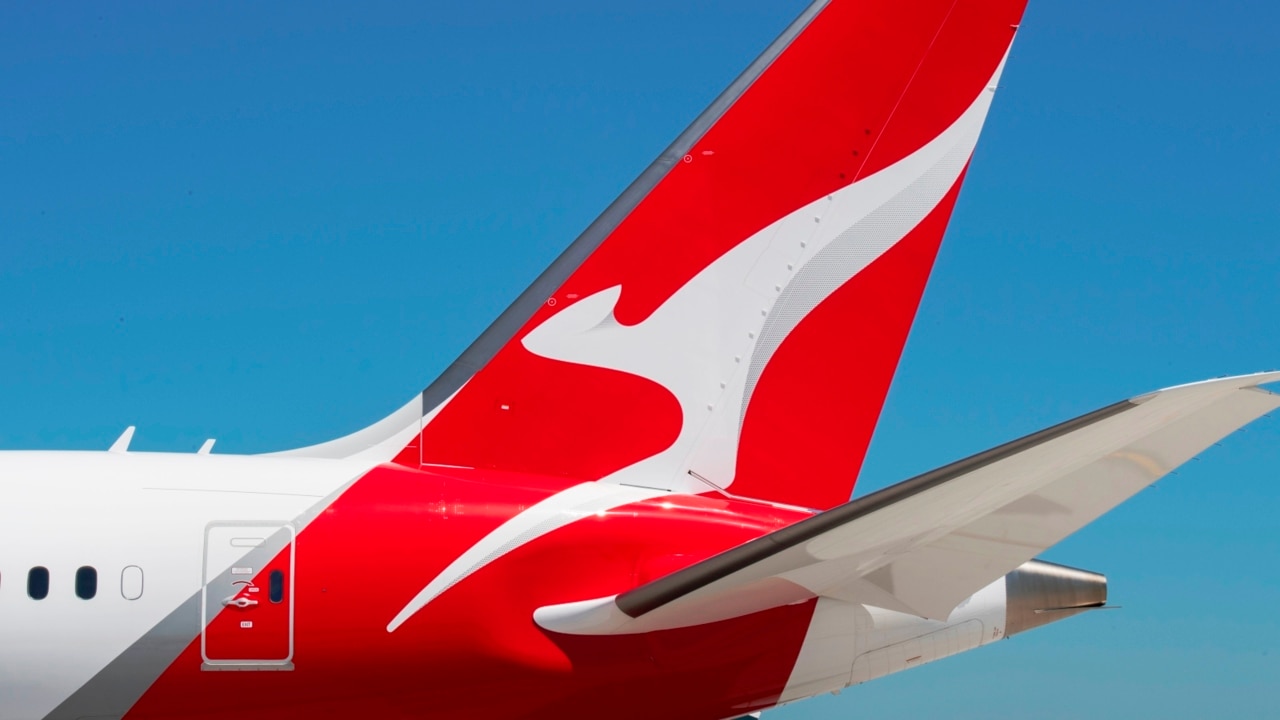Qantas grounds three 737s as Boeing takes dozens out of service
Qantas takes three 737-800s out of service over hairline cracks, as Boeing grounds dozens of aircraft worldwide.

Qantas has taken three Boeing 737-800s out of service after finding hairline cracks in a component that attaches the wings to the fuselage.
It comes as Boeing announced dozens of its popular 737 Next Generation planes had been removed from service as a result of the issue with “pickle forks”, a component that is supposed to last beyond the life of the aircraft.
The pickle fork cracks were first discovered in another airline’s 737-800s while undergoing maintenance in China last month. The discovery prompted the Federal Aviation Administration to issue an emergency directive ordering urgent inspections of aircraft with more than 30,000 cycles, or landings.
No Qantas aircraft fell into that category, but the airline has 33 737-800s that have performed over 22,600 flights and it set about having those checked out.
After finding cracks in one plane with almost 27,000 flights, the process was expedited.
Qantas has confirmed two other aircraft were found to have hairline cracks in the pickle fork, and all three have been grounded while “complex” repairs are carried out. The planes are expected to return to service before the end of the year, and a Qantas statement said any customer impact would be minimised.
READ MORE: Calls for Qantas to ground Boeing 737 fleet | Qantas starts cost cutting | Boeing’s ‘flying coffins’
Qantas Domestic CEO Andrew David said they had gone “above what was required to check our aircraft well ahead of schedule”.
“We would never fly an aircraft that wasn’t safe,” said Mr David. “Even where these hairlines cracks are present, they’re not an immediate risk which is clear from the fact the checks were not required for at least seven months.”
He slammed the Australian Licensed Aircraft Engineers Association for demanding Qantas ground its entire fleet of 75 737-800s until all were checked for the issue, calling the claims “irresponsible”.
“They completely misrepresented the facts,” Mr David said.
“Those comments were especially disappointing given the fantastic job our engineers have done to inspect these aircraft well ahead of schedule and the priority they give to safety every day of the week.”
The new difficulties compound the troubles facing the US manufacturer, which has faced tumbling profits, federal scrutiny and calls for its CEO to resign after deadly crashes involving the 737 MAX, the successor aircraft for the 737NG.
After Qantas earlier took one 737NG out of the air, it said it would urgently inspect 32 others but that passengers had nothing to fear.
Nine of the planes were grounded in South Korea this month, including five operated by Korean Air, according to authorities in Seoul. US carrier Southwest Airlines has taken three planes out of service due to the problem.
Several other leading carriers said inspections had not turned up cracks on their aircraft.
Boeing had previously reported a problem with the model’s “pickle fork” - a part which helps bind the wing to the fuselage.
US regulators earlier this month ordered inspections of older NG aircraft, directing planes with more flying hours to be checked within seven days.
A Federal Aviation Administration spokesman said operators could not fly the planes until the issue was addressed.
Following the Qantas announcement, a Boeing spokesperson said in Sydney that fewer than five per cent of 1000 planes had cracks detected and were grounded for repair.
Boeing and Qantas earlier stressed travellers should not be concerned. “We would never operate an aircraft unless it was completely safe to do so,” Qantas head of engineering Chris Snook said.
Stephen Fankhauser, an aviation expert at Australia’s Swinburne University of Technology, said that the parts were designed so the “structure can tolerate some level of damage or degradation.”
“The inspection period is set to ensure the cracks do not continue to grow to a dangerous length and then significantly compromise the strength of the airframe,” he said.
Some carriers still checking
The FAA on October 3 ordered immediate checks of Boeing 737NG planes that had flown more than 30,000 times.
Planes with at least 22,600 flight cycles should be inspected within the next 1,000 trips, the order said.
Qantas said it had found the fault in a more lightly used aircraft than those singled out for early checks; one that had recorded fewer than 27,000 flights.
“This aircraft has been removed from service for repair,” Qantas said in a statement, adding it had hastened its inspections of 32 other 737NG planes to be completed by Friday.
Australia’s Virgin Airways also conducted checks on its 17 Boeing 737NG planes and did not find any issues, a spokesman for Australia’s air regulator said.
Ireland’s Ryanair said it was continuing to review its aircraft and did not expect the issue to affect operations or fleet availability.
Norwegian said its own fleet was “not immediately concerned” because its Boeing aircraft were still relatively new, while Transavia France said it had begun checks on 38 jets with no cracks found so far.
Among US carriers, American Airlines and United Airlines said they had found no cracks on planes thus far, while Delta Air Lines reported no structural issues on its 737 planes.
Southwest Airlines said it took three NG planes out of service for repairs and that it was still checking some planes.
“We continue to work with Boeing on the upcoming repairs to the three NG aircraft identified and do not have a firm timeline for when the aeroplanes will be returned to service,” a Southwest spokesman said.
A spokesman for Australia’s aviation regulator said the industry response was about “nipping a potential safety problem in the bud by taking proactive action now.” But there were calls for Qantas to ground its entire 737 fleet until checks were complete.
“These aircraft should be kept safe on the ground until urgent inspections are completed,” an engineers’ union representative, Steve Purvinas, said in a statement.
Qantas described the call to ground its 737 fleet as “completely irresponsible.” “Even when a crack is present, it does not immediately compromise the safety of the aircraft,” said Mr Snook.
With AFP





To join the conversation, please log in. Don't have an account? Register
Join the conversation, you are commenting as Logout